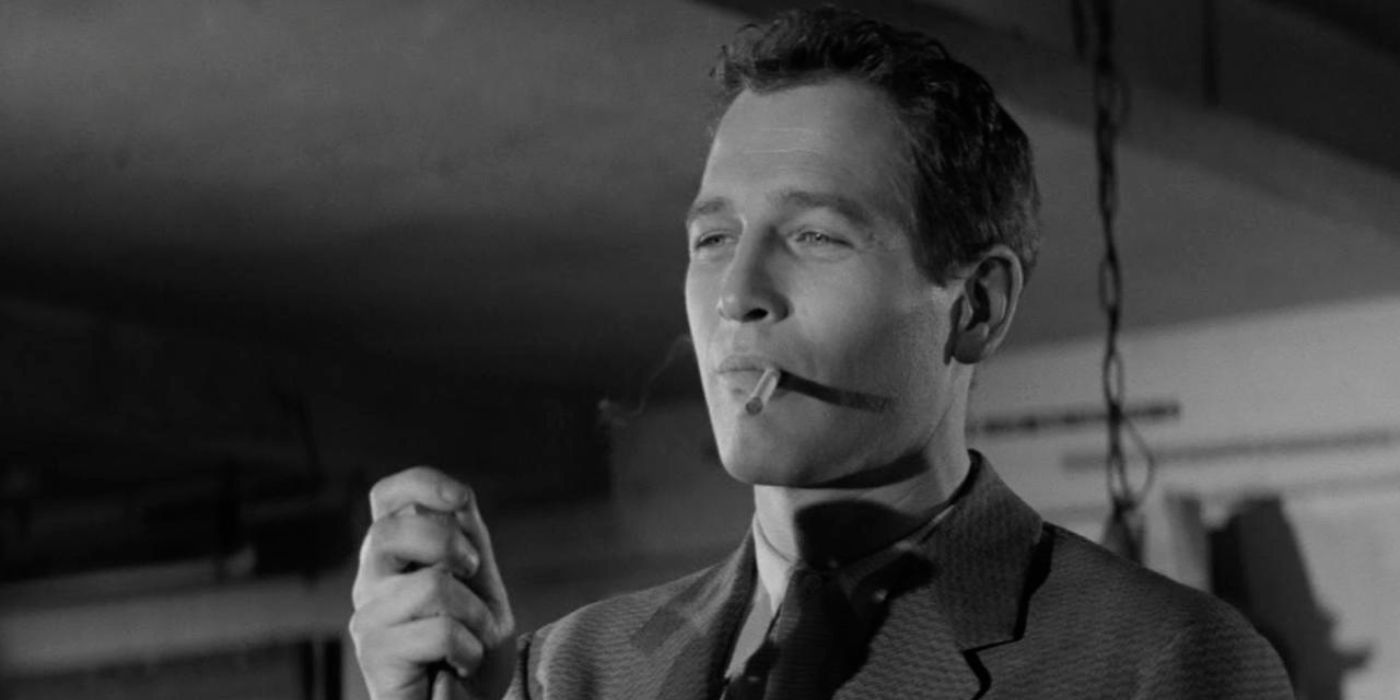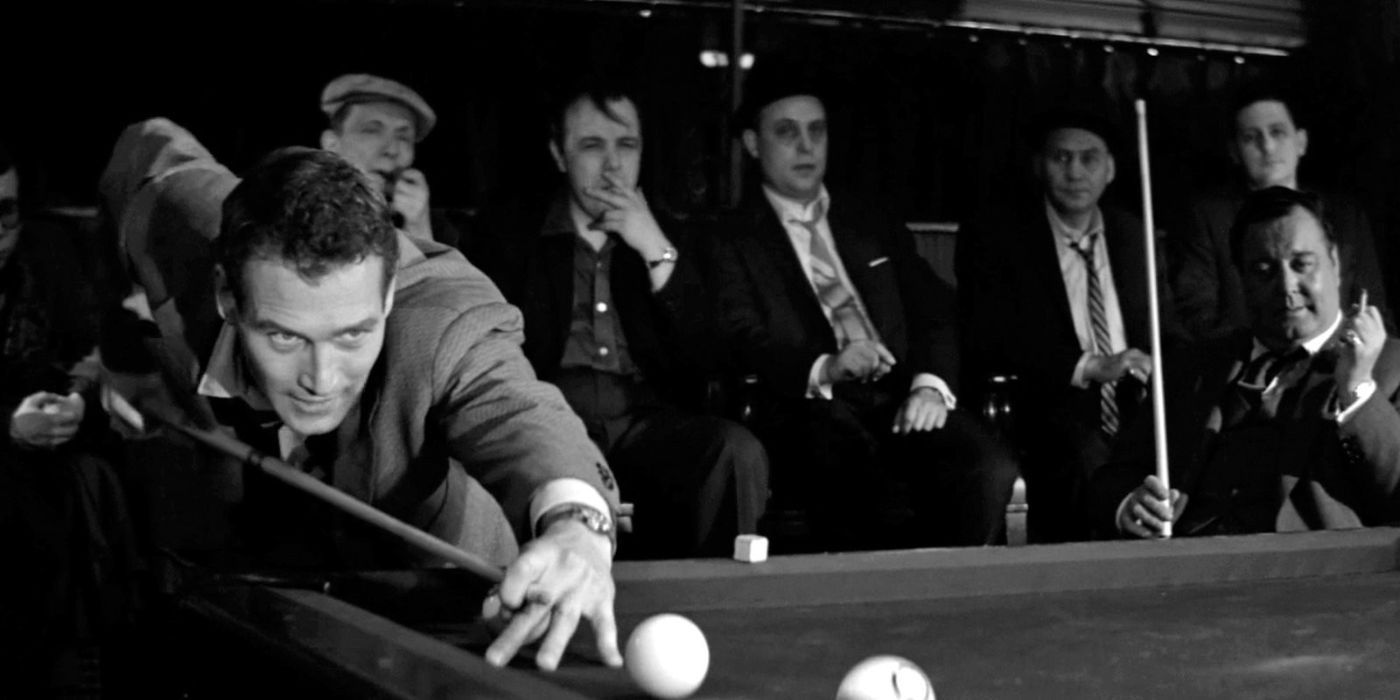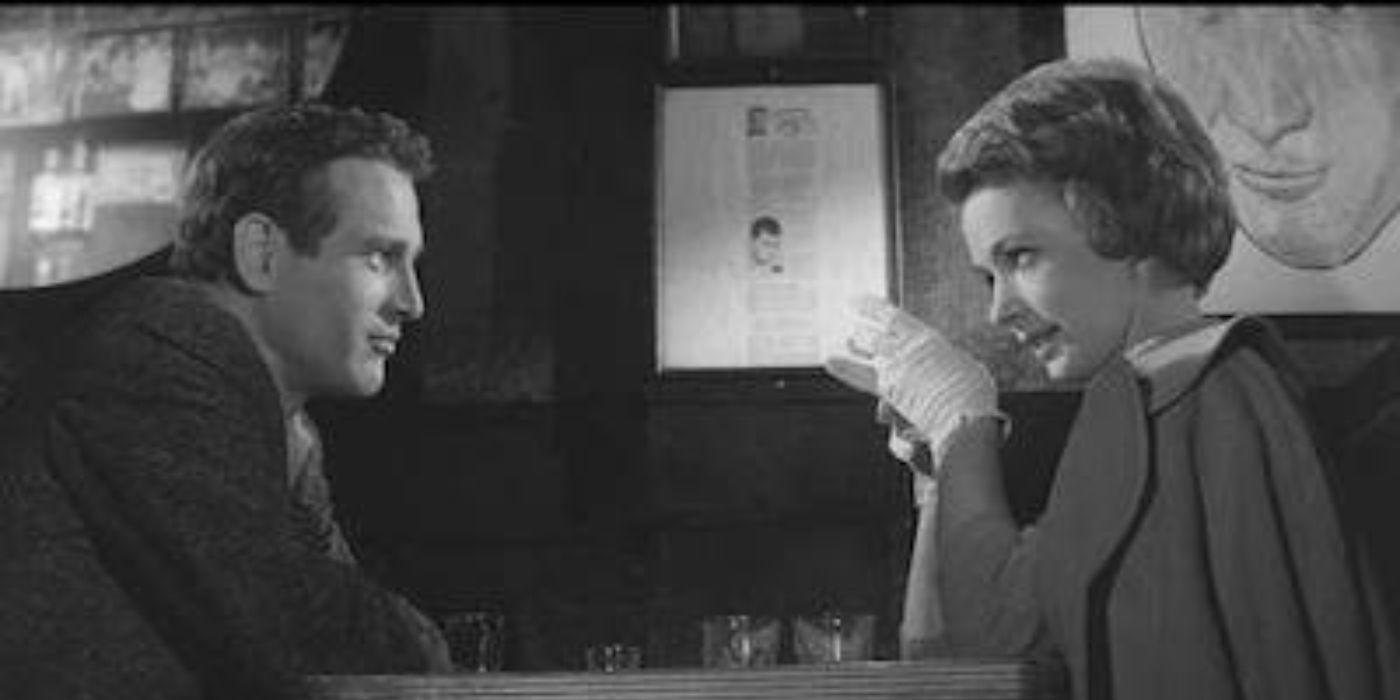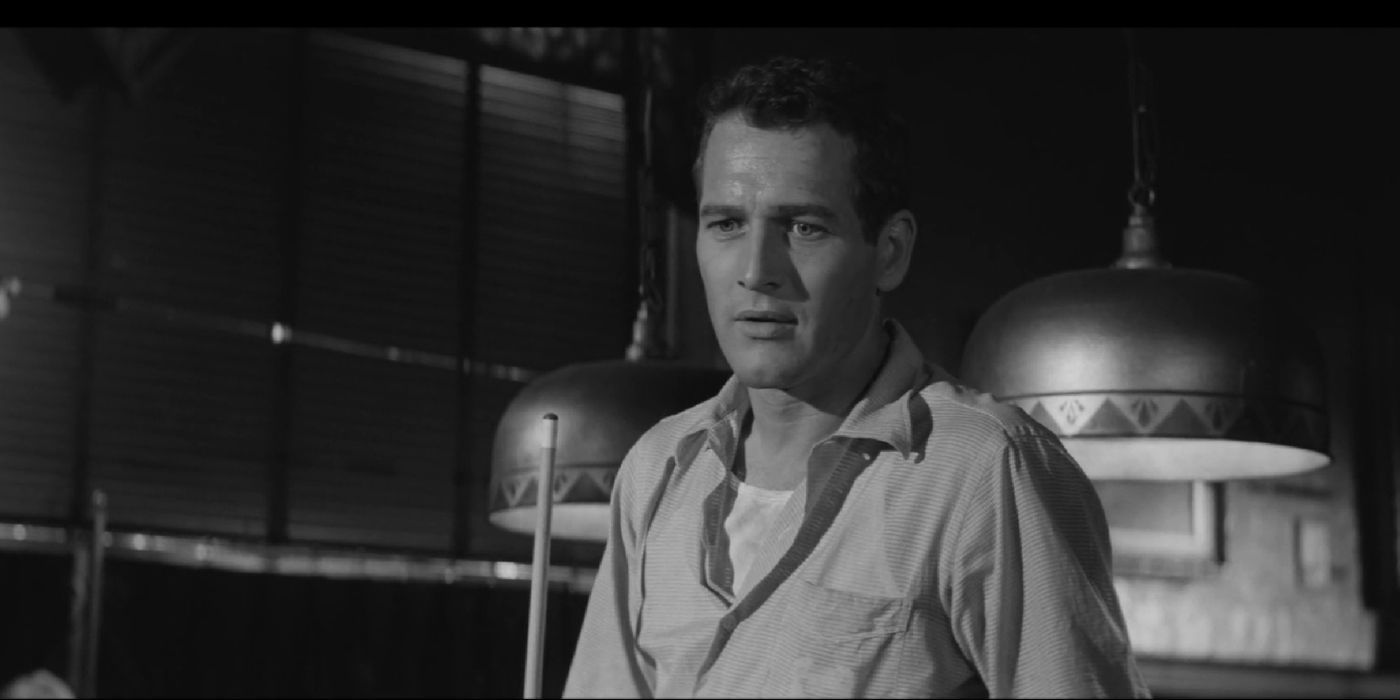Ego lies at the heart of every great character, and nothing drives ego like the simple binary act of winning and losing, the likes of which Paul Newman made one of the greatest movies about with 1961’s The Hustler. There’s no denying that Newman is an all-time icon, known for his super sleek and macho ‘man’s man’ roles particularly in his heyday during the 60s. However, even dubbing the man as simply ‘legendary’ doesn’t give him enough credit for the sheer amount of work he put into revitalizing the common audience as not just one that desires to be entertained, but one that desires to think.
Whether it’s Cool Hand Luke or Butch Cassidy and the Sundance Kid (to name simply two out of dozens of classics), Newman’s roles consistently challenge the values his characters originally uphold and illustrate their cost. Throughout his extensive bodies of work, his films uniquely don’t sell a fantasy, a la James Bond, but the reality of that fantasy instead. Arguably, no film better expresses the weight of reality on talent, charisma, and success than The Hustler.
Directed by Robert Rossen and adapted from the 1959 novel of the same name, the film focuses on Newman’s character Fast Eddie, a small-time pool hustler who scams competitors into playing him in spite of the fact that he’s the Michael Jordan of pool halls. In his obsession to win every game at all costs, Eddie becomes corrupted by money and ego as he ascends the ranks for a chance to play local legend Minnesota Fats (Jackie Gleason from The Honeymooners). While on the surface, The Hustler may be about a pool player’s rise to the top and the resulting moral degradation, the subtext involves a story about humanity and masculinity, particularly in the context of gambling, where winning will turn you into a monster of arrogance, while losing leaves you vulnerable and castrated beyond repair.
‘The Hustler’ Shows the Weight of Achieving One's Dream
Given that director Robert Rossen was a former member of the Communist Party and was asked to appear twice before the House of Un-American Activities Committee (the first time pleading the fifth, the second time giving names), it’s far from a stretch to say that the man wasn’t a fan of capitalism. Fortunately, he got the chance to therapeutically exorcize his guilt for ratting on former party members with this scathing condemnation of money and its corruptive effects. Money may not ever be the primary motivation for Fast Eddie’s monstrous pool winnings, but his need for it in order to compete places him in dangerous hands. This is evident in his relationship with Bert (George C. Scott), a professional gambler who offers to stake him for 75% of his winnings. It’s a horrible deal, but after having his thumbs broken by a rival pool hustler and subsequently recovering (with some heavy existential crises in between), the toxic combination of Eddie’s ego and desperation forces him to accept.
The fact that Eddie’s lower class status forces him into the hands of gambling sharks reduces his scintillating talents to someone else’s investment, selling himself as if he were a stock option. However, monetary worth isn’t the only element of capitalism that Rossen and Newman critique. It’s relatively early on in the film that Fast Eddie actually accomplishes his primary goal: to defeat Minnesota Fats in a fair game of pool. After beating him and collecting over $11,000, Eddie has the chance to walk away. Of course, he doesn’t, as he’s no longer interested in winning a simple game. Instead, he’s hellbent on breaking Fats’s spirit, cementing his status as the greatest pool player alive. They play game after game until the early hours of the morning where Eddie succumbs to his flaws and loses it all. In keeping with the reality of capitalist fantasies, the instant one dream is achieved, another needs to be formed, for fantasy’s realized are never as sweet as the dream itself.
'The Hustler' Shows That Addiction Affects Not Only the Victim, But Those Closest to Them
Piper Laurie plays Fast Eddie’s love interest Sarah. An addict and an alcoholic, she represents the greatest tragedy that comes from Fast Eddie’s obsession with winning, as well as the moral compass he fails to listen to time and time again. While the majority of the film sees horribly masculine men wrestle over the worth of their own egos, Sarah is the only one who sees this world of hustling for what it is: “perverted, twisted and crippled.” These are the words she writes on a mirror in lipstick before taking her own life. One of the most powerful lines she iterates towards Bert relates to his lack of care for the wellbeing of the talent he invests in. “There are no tomorrows,” she says. “You buy them all today, and you buy cheap.” Whether it’s her insistence that Eddie not beg Bert for more cash (all because his ego can’t handle a simple loss) or her affirmation that Eddie’s a winner (though not for the reasons he thinks he is), Sarah represents the horrific extent to which addiction of any kind drags those closest to the victim down with them.
It’s Passion, Not Winning, That Makes Eddie a Winner in 'The Hustler'
After Eddie’s had both of his thumbs broken, Sarah nurses him back to health while he remains sickeningly obsessed with the games he’s lost. The broken thumbs in this instance symbolize his castration, unable to view himself as the man he once was. In a heartfelt dialogue between the two that acts as the emotional core of the film, Sarah insists to Eddie that he’s a winner, not for the money he swindles lesser pool players out of, nor for his immense talent. It’s his passion that makes him a winner, as the majority of people in the world go their whole lives without feeling as intensely about anything.
The scene recounts an earlier conversation in the film between Eddie and Bert, where Bert insists that Eddie is good but lacks character. Eddie spends the majority of the rest of the film contemplating what this means, tragically only realizing it upon Sarah’s death. Character is feeling, and character is understanding (just as Minnesota Fats does) that a game of pool is only worth so much. In the film’s intensely cathartic final scene, Eddie finally beats Fats the way that he wanted to but takes no pleasure in the trivialities of his victory. Instead, he simply acknowledges the “helluva game” played between the two underground titans. When Bert fights him for a portion of his winnings, Eddie labels him the real loser for the fact that he’s dead inside. Bert exiles Eddie from every big-time pool hall which Eddie, his ego having collapsed under the weight of what it’s cost him, humbly accepts.
One of the most remarkable things about The Hustler is the fact that it’s one of the first major sports films that ends on a note of surrender, showcasing the importance of the need to accept reality rather than succumb to the subjective extremes that winning and losing does to an individual. When it comes to gambling, the majority of wins result in boastful degradations of character, while the majority of losses radiate far beyond the material. Real winning isn’t even getting back up again and fighting until your last breath, as so many sports movies will contend. Real winning is realizing when to walk away. It’s just a game, after all.




